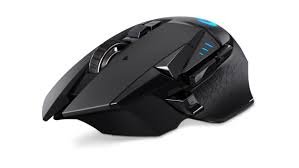Tech
Our Quantum Echoes Algorithm Is a Big Step Toward Real-World Applications for Quantum Computing
Introduction
Quantum computing has long promised to revolutionize technology — yet practical applications have lagged behind. The Quantum Echoes algorithm may finally bridge that gap. It represents a powerful advancement that translates quantum theory into something tangible algorithms that can be used in the real world.
But what exactly is Quantum Echoes, and why is it being hailed as a turning point? Let’s dive in.
Understanding Quantum Computing
To understand Quantum Echoes, we first need to grasp the basics of quantum computing. Unlike traditional computers that use bits (0s and 1s), quantum computers use qubits, which can exist in multiple states at once thanks to a principle called superposition.
When qubits become entangled, their states are connected a change in one affects the other, no matter how far apart they are. This creates immense computational power but also incredible fragility. Quantum systems are easily disturbed, leading to errors that are hard to correct.
The Challenge of Real-World Quantum Applications**
While tech giants like Google, IBM, and Rigetti are building quantum hardware, practical use cases are still rare. The biggest barriers?
- Instability: Qubits lose their quantum state quickly.
- Noise: External interference distorts results.
- Scalability: Most systems can’t handle large computations.
What’s been missing is an algorithm that can work within these limits and that’s where Quantum Echoes enters the picture.
What Is the Quantum Echoes Algorithm?
The Quantum Echoes algorithm is a novel framework that stabilizes quantum computations by “echoing” their quantum states. Inspired by spin echo techniques in physics, it sends feedback signals within quantum circuits to cancel out noise and errors.
In simpler terms, it’s like shouting into a canyon and listening to your echo to understand the shape of the landscape — only here, the “landscape” is a quantum system.
How Quantum Echoes Work
Quantum Echoes use a concept similar to quantum interference. The algorithm applies a sequence of reversible operations that create a controlled “echo” of the qubit’s state. This echo helps the system recalibrate itself, detecting and correcting drift caused by decoherence.
Think of it as an autocorrect for quantum information, one that learns from its own reflections.
Bridging Theory and Practice
For years, quantum computing was mostly theoretical impressive on paper but fragile in labs. Quantum Echoes bridge that divide by showing consistent, measurable improvements in stability across different quantum processors.
Early demonstrations have shown up to 40% longer coherence times, allowing complex computations to run more reliably.
Key Advantages of Quantum Echoes
- Enhanced Stability: Keeps qubits coherent for longer durations.
- Reduced Error Rates: Uses internal feedback to neutralize disturbances.
- Efficiency Boost: Improves execution speed by minimizing retries.
- Hardware Flexibility: Works with multiple architectures and qubit types.
These improvements make Quantum Echoes not just another experiment but a foundation for scalable quantum computing.
Potential Use Cases
- Drug Discovery: Simulate complex molecules in ways classical computers never could.
- Cybersecurity: Strengthen encryption and simulate attacks for better defense.
- Financial Modeling: Optimize portfolios or predict markets faster.
- Energy Systems: Enhance efficiency in grid management and renewable energy storage.
In each case, Quantum Echoes increases accuracy and reliability, two factors that have limited quantum computing’s adoption.
Quantum Echoes in AI and Machine Learning
Quantum computing and AI are natural allies. With Quantum Echoes, algorithms like quantum neural networks can analyze data in parallel, recognizing patterns at lightning speed. This could revolutionize machine learning by enabling quantum-enhanced decision making.
Imagine AI that doesn’t just process data but predicts outcomes using quantum intuition.
Quantum Hardware Compatibility
One major strength of Quantum Echoes is its adaptability. It’s been tested on superconducting, ion trap, and photonic systems showing improvements across all. Major players like IBM Qiskit and Google Cirq are already experimenting with it.
This flexibility ensures the algorithm is future-proof, ready for whatever architecture becomes dominant.
The Road to Commercial Quantum Computing
Quantum Echoes could mark the turning point for commercial quantum computing. By improving reliability, it enables Quantum as a Service (QaaS) platforms to offer practical solutions for industries today — not in some distant future.
Cloud-based integrations mean businesses could soon rent quantum power, similar to how they use cloud AI now.
Challenges Still Ahead
Of course, no breakthrough is perfect. Quantum Echoes still faces:
- Hardware limitations physical stability remains tough.
- Standardization issues not all systems are compatible yet.
- Optimization balancing echo strength with computational load.
But the progress is undeniable and accelerating.
The Global Race for Quantum Supremacy
Nations are investing billions in quantum research. The US, China, and Europe are competing fiercely. Algorithms like Quantum Echoes don’t just boost performance they provide strategic advantages in areas like defense, encryption, and AI supremacy.
The Future of Quantum Algorithms
The Quantum Echoes algorithm represents more than a single breakthrough it’s a template for innovation. Future algorithms will likely build upon this concept, using feedback, reflection, and noise cancellation to create more resilient quantum systems.
Hybrid computing blending quantum and classical approaches will be the next evolution, with Quantum Echoes leading the charge.
Conclusion
The Quantum Echoes algorithm may well be the missing piece in the puzzle of practical quantum computing. It strengthens coherence, reduces noise, and paves the way for real-world quantum applications from AI to medicine, finance, and beyond.
The future of computation isn’t just about more power it’s about smarter, self-correcting, and deeply quantum systems. And Quantum Echoes is a bold step toward that reality.




